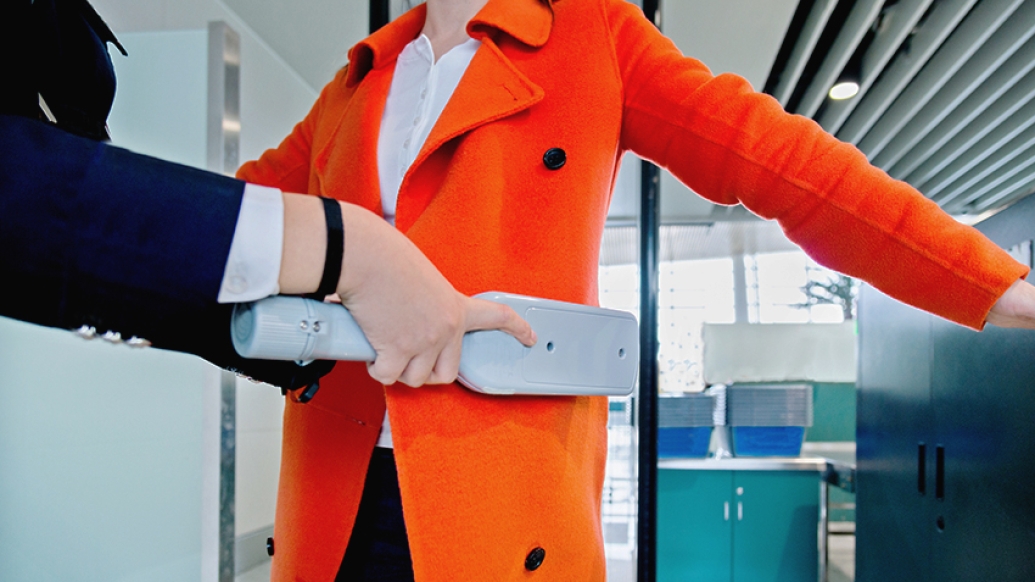Advance planning and clear communication can make the exchange go more smoothly for travelers with the implanted medical device.
7:00 AM
Author |

Several years ago, Lisa Mulcrone had the opportunity to take an eight-week trip around the world — a trek that included stops in Brazil, China, Costa Rica and India.
But she worried about navigating foreign airports and security scanners that could possibly affect the implantable cardioverter-defibrillator, or ICD, that she has relied on since 2012.
LISTEN UP: Add the new Michigan Medicine News Break to your Alexa-enabled device, or subscribe to our daily audio updates on iTunes, Google Play and Stitcher.
"I hadn't traveled out of the country much at all before," says Mulcrone, a public relations manager from East Lansing, Michigan. She was diagnosed with congenital heart block and ventricular tachycardia six years before the trip.
An ICD is a battery-powered device that can fix an abnormal heart rate or rhythm and prevent sudden death. Placed under the skin of the chest, it is attached to one or two wires (called leads), which typically go into the heart through a vein.
Beyond the airport logistics, Mulcrone's work supervisor also worried whether she was physically up for the journey.
SEE ALSO: 3 Questions About ICDs for Arrhythmia Treatment
Speaking with a cardiologist at Michigan Medicine's Frankel Cardiovascular Center helped put Mulcrone's fears to rest.
"He said the ICD device was there to help me live my life and I should go live it," says Mulcrone, now 52, who made the incredible voyage in January and February 2013.
Although it isn't unusual for ICD patients to fly to their vacation or business destinations, going through airport security at different airports can be confusing.
Here's what to do:
Tips for traveling with a defibrillator
First, present your Medical Device ID card (available from device manufacturers such as Boston Scientific) at the first security station.
This card identifies you as a pacemaker or defibrillator patient. It also explains, in 13 languages, that the device can trigger alarms at airport security checkpoints and that strong magnets can affect the device's function.
After showing your card, follow the security staff's directions. Depending on the airport, the staff may take one of the following steps:
-
Send you through a full-body scanner. The security arch will not harm your device or change the programmed settings. However, your device may set off an alarm.
-
Use a hand-held security wand. If a wand must be used, inform the security officer that you have an implanted device. Because the wand contains a magnet, tell the security officer that the search must be done quickly and not to hold the wand over your device.
-
Do a pat-down search. If you request or are chosen for this option, you can ask that it be performed in a private area out of public view.

Global travels realized
With her itinerary including stops in Malawi, Rwanda and Bangladesh, among many others, Mulcrone completed her journey without incident.
And she faced no issue from airport workers after revealing she had a heart device and requesting a pat-down search in lieu of the scanners for the security check.
"Having an ICD didn't hold me back," Mulcrone says. "It gave me the peace of mind so I could go out and do extraordinary things — including a trip around the world."

Explore a variety of healthcare news & stories by visiting the Health Lab home page for more articles.

Department of Communication at Michigan Medicine
Want top health & research news weekly? Sign up for Health Lab’s newsletters today!





